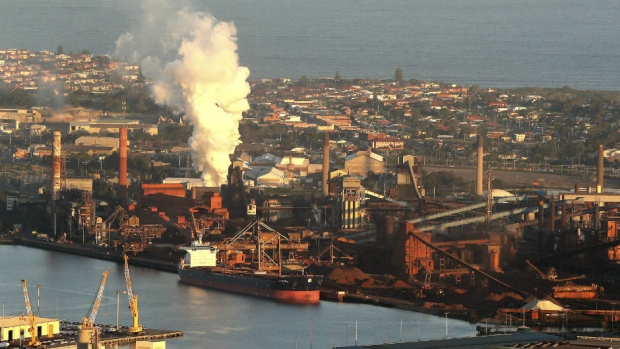Nov 30, 2016
Canadian GDP bounces back from Alberta wildfires in Q3
, The Canadian Press

OTTAWA -- The Canadian economy slightly exceeded expectations in the third quarter as it grew at an annual pace of 3.5 per cent, Statistics Canada said Wednesday.
Strong numbers for energy exports helped the country's real gross domestic product bounce back from a deep second-quarter contraction, which saw the economy recoil by a revised 1.3 per cent, the Ottawa-based agency said.
The healthy rebound followed a second-quarter decline largely caused by oil-production shutdowns caused by Alberta wildfires and scheduled maintenance at oil sands facilities.
Statistics Canada said exports of energy products expanded 6.1 per cent in the third quarter following a decline of 5.1 per cent during the previous period.
Overall, exports of goods and services rose 2.2 per cent in the third quarter compared to a contraction of 3.9 per cent in the second quarter.
A consensus of economists had been expecting the numbers to show that the economy grew at an annualized rate of 3.4 per cent in the third quarter, according to Thomson Reuters.
The key reading for GDP came ahead of the Bank of Canada's scheduled announcement next week on its trend-setting interest rate, which is widely expected to stay at its low level of 0.5 per cent.
In its October monetary policy report, the central bank predicted 3.2 per cent growth for the third quarter and 1.5 per cent for the final three-month period of 2016.
Economists will scrutinize the numbers for signs that economic momentum will carry into the final three months of the year.
In September -- the final month of the third quarter -- the economy expanded at a non-annualized rate of 0.3 per cent. Economists had been predicting September GDP to rise 0.1 per cent.
That hand-off followed growth of 0.2 per cent in August and 0.5 per cent in July.
The report also found that business investment in machinery and equipment contracted 3.2 per cent in the third quarter, following a gain of one per cent in the second quarter.
Business investment in residential structures decreased 1.4 per cent in the third quarter after nine straight quarters of growth. Statistics Canada said most of the decline was due to a 5.7 per cent drop in ownership transfer costs, which point to movement in the resale market.
The lower transfer costs followed British Columbia's introduction of a new tax on home purchases by non-residents, the report noted.


